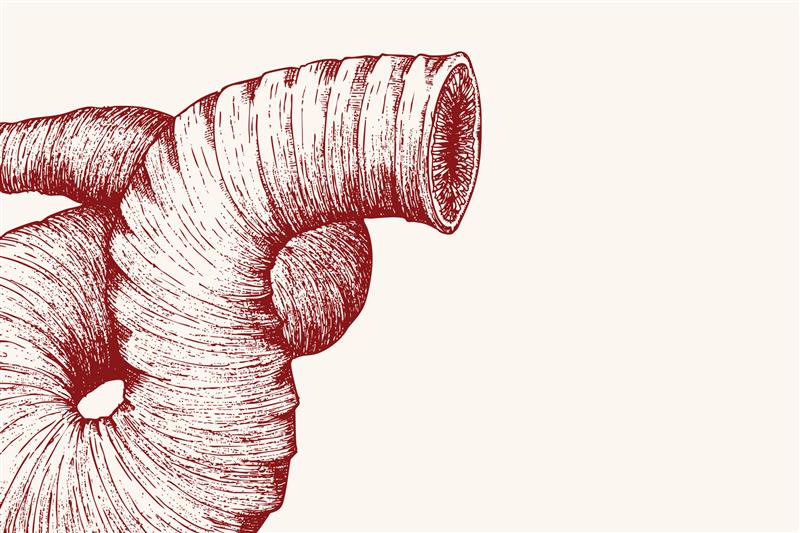
2 minute read
DUNE Sandworms
Fact Vs Fiction With A U Worm Wrangler
by LISA POTTER
FOR MICHAEL WERNER, A SCIENCE FICTION FAN AND BIOLOGIST WHOSE RESEARCH FOCUSES ON THE ROUNDWORM NEMATODE, DUNE IS PEAK ENTERTAINMENT.
Author Frank Herbert’s 1965 novel Dune and its most recent film adaptations also shaped a young Werner’s worldview.
“Science fiction allows the reader to explore different aspects of the near possible; that’s the science part, but also fantasy, and that’s the fiction part,” says Werner now an assistant professor in the U’s School of Biological Sciences. “The best science fiction writers explore the different facets of the human condition, like love and loss and oppression and tyranny. I found these existential questions to be really inspiring when I was thinking about different career paths and made me excited to pursue science as a possible future.”
To Werner, Dune is the best example of science fiction. The story takes place thousands of years into the future in an interstellar society where a handful of noble houses control planetary fiefdoms, one of which is ordered to steward an inhospitable desert planet indigenous to the Fremen people. It is also the only place where “spice” is found, the most valuable compound in this fictional universe that extends life, enhances mental abilities, and facilitates intergalactic travel. The epic explores multiple themes and it birthed the most infamous creatures in fiction—Shai-Hulud, the massive worms that swim through the planet’s oceans of sand and produce mélange deposits that the characters refer to as "spice".
When the first of the latest iterations of Dune movies dropped in 2021, Werner wrote about the science of sandworms and their Earthly counterparts. In March, his lab published a study about worms living in a different inhospitable place— nematodes in the Great Salt Lake. Previously, only two multicellular animals had been known to inhabit the notoriously salty ecosystem.
@theU spoke with Werner about the science behind the sandworms of Dune. “I’ve thought a lot about this because I love Dune and I love worms,” he says.









